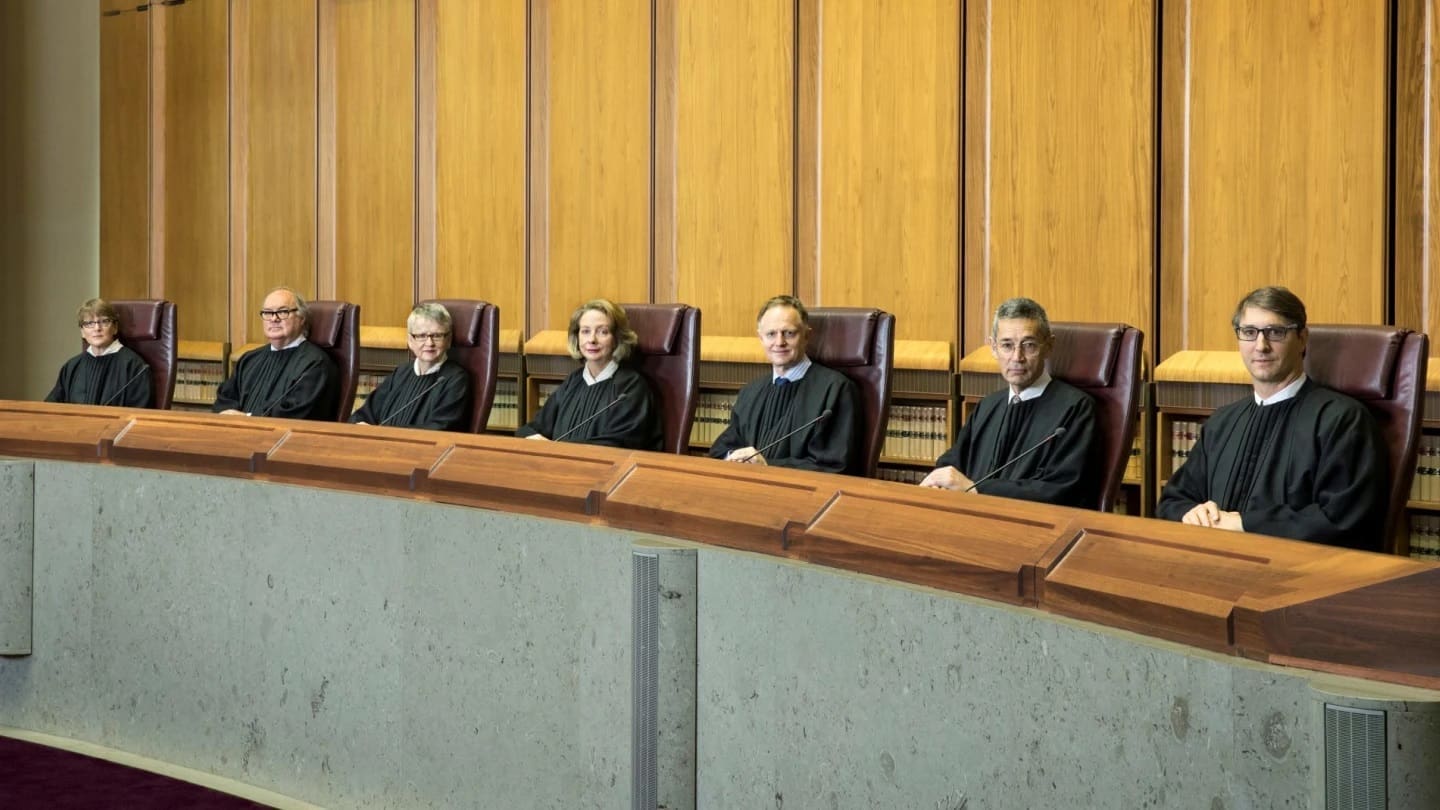On last Friday's F&G Facebook Live we discussed dog bites. What are your rights if bitten, and what are your duties and obligations as a dog-owner? What is the legislation in this area, and what is the process that occurs after a dog attacks someone?
It is important to note that dog-owners may be responsible to pay for the injuries and damages caused by a dog attack with regards to civil liability, and dog-owners may also be held criminally liable under the Crimes Act and the Companion Animals Act.
Contact Freedman & Gopalan Solicitors on 02 8917 8700 or via our online enquiry form if you need legal advice.
Navigating a parenting agreement that works well with both you and your co-parent can be difficult, especially during the festive season where things become more hectic. In addition, conflicting family traditions coupled with the angst and emotions that comes with separation can make things even more difficult during this time.
Whilst arrangements may already be in place for the day to day activities of the child, many separated couples forget to consider upcoming celebrations such as Christmas Day. There is no better time than now to start discussions with your co-parent. Some things you may also want to consider are: -
- How the school holiday period will be arranged? What routine will be best suited?
- Do you have work commitments? Does your co-parent have work commitments?
- How do your family traditions differ to your co-parent’s? Will the child be spending Christmas Day together with you both or separately? Otherwise, who will the child stay with on Christmas Day?
After an amicable agreement is in place, we would always recommend for both parties sign a written agreement. This will ensure that it is clear, and both parties will be on the same page at all times. If circumstances change, you may also revisit the agreement to make alternative arrangements.
If, however, you have exhausted your options and you are not able to reach an agreement with your co-parent, we would highly recommend for you to get in touch with us in order to explore your options further.
Remember, however, there are cut off periods for filing any Applications intended to deal with Christmas arrangements with the Family Court. This year, that cut off date is 4:00pm on Friday, 13 November 2020.
If you wish to discuss your parenting arrangement further, please do not hesitate to contact Freedman & Gopalan Solicitors on 8917 8700, and we will be able to guide you.
It was announced this week that Justice Simon Steward and Justice Jacqueline Gleeson of the Federal Court of Australia will replace the two retiring High Court judges, Justice Geoffrey Nettle and Justice Virginia Bell, who are retiring in November 2020 and March 2021 respectively.
Many people were unaware that we were even in the midst of choosing new High Court judges – despite the world-wide press covering the appointment and confirmation of Amy Coney Barrett to the US Supreme Court.
It is interesting to compare Australia’s system to the US’, as we are both federal countries, meaning that we have states and territories within one larger country. Much of our Constitution is modelled on America’s and yet our systems for judicial appointments to the highest court of the judiciary are very different.
Appointment of federal judges in the US
Supreme Court justices, judges on the court of appeals and district court judges in the US are nominated by the President and confirmed by the US Senate. This process is set out in the Constitution. Potential nominees are often recommended by senators and members of the House. The judicial system and the courts play no role in nominating and confirming the new judges.
As we have seen in the media coverage and public response to the recent nomination, the process in the US is hyper-politicised. This appointment is said to seal a ‘6-3 conservative majority’ and caused much discussion given the confirmation occurred only a week before the presidential election.
Judicial appointments in Australia
Unlike in the US, judicial appointments in Australia are much quieter, garner much less attention and do not follow a formal process set out in the Constitution. There is no official application process or requirement of interviews, and much of the process occurs behind closed doors. In practice, the Attorney-General presents a nominee to Cabinet, who then recommends the appointment to the Governor-General. If the Governor-General approves, then the incoming judge will be announced by the Prime Minister.
There is frequent insistence that judicial appointments in Australia are made solely on the basis of ‘merit’. However, this does not mean that the decision was completely apolitical. In 2007, constitutional law expert Professor Anne Twomey stated that:
‘A government may appoint a judge for a range of reasons, including adding some form of balance to the Court (state, sex or expertise in a particular area of law in which the Court is lacking) or because a judge is the leading jurist of their generation, or simply because a person is an uncontroversial compromise when views are polarised in relation to other candidates’
Before the appointments were announced, it was predicted by many that the new judges would be ‘like-for-like’ both in terms of their gender and their state of origin. The two retiring judges are from Victoria and NSW, as are the two appointees. As a federal system, there is emphasis on keeping a state balance in the High Court, however, there have been some queries this week about why a South Australian judge has never been appointed to the High Court.
The system for judicial appointments has also been criticized as having no formal recognition of the importance of diversity on the High Court. In terms of gender, women comprise 62% of law graduates in Australia today, and only 36% of Commonwealth judges. The process has also been questioned as being overly opaque and lacking political accountability. Some critics are calling for greater transparency and clearer selection criteria, rather than being purely based on the vague idea of ‘merit’.
With the upcoming Christmas holidays fast approaching (or not coming fast enough), many people find themselves in a new situation where they have recently separated, with the unresolved issue of what is happening with care of the children and how to raise this with the other parent.
Christmas is a time to spend with your closest family and friends to celebrate and be grateful for with the ones that you love. Usually a time of togetherness for families, it can be a first time you find yourself in a situation where years of tradition are uprooted.
Here are some ways to assist you in navigating the Christmas holiday period as a newly single parent.
- Plan Ahead
Last minute stress of raising issues in relation to the care of children never helps anyone, simply increasing the deadlines and pressures of an already difficult time of a new single parent trying to juggle employment commitments, care (or lack thereof) the child/ren and financial constraints.
Begin the conversation with the other parent if you do not already have a parenting arrangement or court orders in place. Should you be unable to agree, you can engage in alternate dispute resolution in order to resolve any outstanding issues with the assistance of either a mediator and/or Family Dispute Resolution Practitioner (which is a step required to be undertaken as a pre-action procedure in order to make a genuine attempt at resolving the matter prior to initiating proceedings in the Family Court/Federal Circuit Court). You are also able to undergo Family Dispute Resolution with legal assistance.
In the event that no arrangement be reached at FDR or between the legal representatives, the option of filing an Application with the Court is the last resort. However, there is a deadline for parenting applications to be considered prior to the Christmas Holiday period, which is usually the second Friday in November, unless of course it is considered urgent.
It is always handy to have any agreement reached in writing so you are both on the same page (pun intended) and there is no miscommunication or understanding.
- Work Together
You and your former spouse/partner are the best ones who know your individual family circumstances and what is important to you, not judges, lawyers or other individuals who have gone through the process and seek to provide you with advice and tell you what you should do.
The best way to assist your children to go through the separation period, which they themselves are affected, is for them to see that you respect their relationship with the other parent, and to see that their parents are trying to work together for the best outcome.
- Your children come first
This is not a time a time to think from a win/lose perspective, thinking that if you do not get what you ask for, that you are ‘losing’.
The Court’s paramount consideration is what is in the best interest of the children. Think about ways to ensure that the children are comfortable and happy with the arrangements that are in place. Never ‘guilt-trip’ your child/ren into feeling bad about spending time with the other party during the holidays.
Whilst it is important for children to know that you love them tremendously with all you heart and soul and will never let anything bad happen to them, do not let them know that you are hurting because they are not there with you and make use of the time that you do have them.
Also keep in mind that the current situation (if particularly bad), will not always be the case and children remember and appreciate the time and care that you put into them during times like this when they are older.
- Things to consider when planning ahead
Specifically discuss with the other parent what the plans are to avoid any misunderstanding, including the following:-
- The specific times that the children will be spending with each parent, taking into consideration any family events and also the age of the children and whether it is age appropriate for the child to be away from their primary attachment figure for any extensive period of time.
- The distance between changeover points and where the changeover is to occur. It is important to keep in mind an age appropriate location and think about the time taken to deliver the child/ren from one location to the other. The changeover location should be at a neutral public location in order to avoid the risk of conflict if this is an issue (particularly if other family members are present and there is has been ongoing animosity). Planning ahead will also reduce the anxiety associate with last minute planning, and deal with any issues such as whether a particular location will be open during the Christmas holiday period (due to public holidays for example.)
- Gift giving – discuss gifts with the other party so that there isn’t a cross-over of the same presents, for example, a gaming console. Work together so that gifts supplement each other in these circumstances.
- Be realistic
There are going to be occasional hiccups that arise with a new situation. Be realistic in your expectations and try facilitating or consider alternative arrangements with the other parent that work best in your circumstances, keeping the child/ren in mind.
There is no one arrangement that is suitable for all families when considering Christmas Day (or the Christmas Holiday period), so make sure to think of an arrangement that will work for both parents and in particular, the children.
The aforementioned is in circumstances where you and the other parent are on fairly amicable terms. Should there be an imminent threat of abuse, history of family violence and threats made, leave immediately or if you are unable to, contact the Police for urgent assistance.
It is also important to keep in mind who has possession of the child/ren’s passports (is this is applicable), particularly if your former partner/spouse is a citizen of another country. If there are any indications that the other parent may leave the country without having provided you with notice of the holiday, together with the details such as flight itinerary, where the children will be staying as well as contact details, contact our expert family lawyers to understand what your rights are in this situation.
This article is general tips and advice only and should not be taken as legal advice. For legal advice or to find out further information, contact our family law solicitors at (02) 8917 8700 for a no obligation free consultation.
“Should I Stay or Should I Go”, coincidentally a song played by a band called The Clash, is a question many parties ask when they separate, and both often think they are entitled to remain living in the home whilst the other finds alternate accommodation.
Often one party decides to leave the matrimonial home when an altercation occurs, and the Police are involved. Whilst the Police are not able to forcibly remove a party when the house is held in joint names (unless of course there are already family violence Orders in place), they do highly recommend that one party leaves in order to ensure that no future incidents occur. This is simply due to the fact that there is often volatile atmosphere created following a new separation, and the Police are the first point of call.
Should the issue remain and there is no agreement as to who is to remain in the home (and usually incur the expenses associated with living in the property such as mortgage repayments), the Court may be asked to decide by way of an Application to the Court.
The Court has the power under Section 114 to:-
- grant an injunction restraining a party from entering or remaining at the matrimonial home (or the premises in which the other party resides, considering that many people are either renting or perhaps in this day and age, due to the expense of owning a home or simply for convenience, continue to live with their parents); or
- grant an injunction relation to the use or occupancy of the matrimonial home (otherwise known as ‘exclusive occupancy of the matrimonial home’).
When deciding whether to grant a party exclusive use or occupancy of the matrimonial home, the Court may make such an order “as it considers proper” with respect to the matter to which the proceedings relate.
The Court will look at the following factors when deciding to give a spouse exclusive use or occupation of the home:-
- the means and needs of the parties (for example, the financial situation of each party)
- the needs of the children
- hardship to either party or to the children
- the conduct of one party which may justify the other party in leaving the home or in asking for the expulsion from the home of the first party (where relevant, for example where one party is engaging in intimidating or manipulative behaviour of there is family violence – be aware however, that this conduct must be serious and not merely annoying or inconvenient).
The above is by no means a restrictive list and are guidelines only.
An Application for sole occupancy of the home is made on an interim basis (that is, during Court proceedings) and the onus of proving entitlement to the home is on the applicant which is done via an Affidavit. The Court will look at the evidence the Applicant seeks to rely upon when exercising its discretion.
If you think an order for sole occupancy may be appropriate for you (or a friend) in your circumstances, contact our family law experts at Freedman & Gopalan Solicitors by calling 02 8917 8700.
What happens if a person dies without a Will?
When a person passes away without a Will, that person’s assets are distributed according to the laws of the state and not according to their wishes. Kindly note that each state has different laws, but it would create a hassle for the surviving members of the family to apply for a Letter of Administration as there is no Will. There would be immense hassle that the surviving members will have to incur in order to establish their relationship, interest in the Estate and what proportion of the Estate should in fact be distributed to them. This would be left to the decision of the Court, and your Estate will not be distributed according to your wishes. Hence, we would strongly recommend that everyone has a Will prepared so that their hard-earned money can in fact be distributed to their loved ones in the manner in which they wish for their Estate to be distributed.
What is a Probate?
If you have a Will, when you pass away, your Executor will proceed to register your Will with the Supreme Court (depending on the amount of assets of your Estate that is being considered), and the Executor will proceed to lodge with the Supreme Court in their state, requesting a Probate to be granted. Once the Probate is obtained, the Executor can proceed to have the Estate distributed according to your wishes.
What is a Codicil?
A Codicil is in essence an Addendum added to your last Will without your entire Will having to be redrafted in a situation where you only want an additional wish, requirement or instruction to be added on.
What is a Power of Attorney?
A Power of Attorney is a legally enforceable document in which you can authorise another person (persons) to act on your behalf in an event that you are unable to do so. This can be generic or specifically relating to one particular act. For example, you can authorise an Attorney to act on your behalf for a Conveyancing matter if you are travelling overseas.
If you wish to discuss about a Will, Letters of Administration, Probate or a Power of Attorney, please do not hesitate to contact our offices to discuss the same on 8917 8700.
Whilst COVID-19 has halted the entire aviation industry for the time being, it may be worthwhile to now sort out any issues relating to your child’s Passport, so you’ll be ready to travel again when borders open!
It is important to consider your rights, obligations and steps to be undertaking as a parent obtaining a Passport for your child post-separation.
The Australian Passports Act 2005
The Australian Passports Act 2005 (‘the Act’) outlines the conditions upon which a child can be issued with a Passport, namely the consent of each person who has parental responsibility of the child must be obtained. Section 11(5) of the Act states: -
A person has parental responsibility for a child if, and only if:
- the person:
- is the child's parent (including a person who is presumed to be the child's parent because of a presumption; and
- has not ceased to have parental responsibility for the child because of an order made under the Family Law Act 1975 ; or
- the person:
- is the child's parent (including a person who is presumed to be the child's parent because of a presumption; and
- has not ceased to have parental responsibility for the child because of an order made under that Act; or
- under a parenting order:
- the child is to live with the person; or
- the person has parental responsibility for the child; or
- the person has guardianship or custody of, or has parental responsibility for, the child under a law of the Commonwealth, a State or a Territory.
Your Consent
If you have concerns that the other parent may apply for a Passport without your consent, there a number of steps that you could take.
- You can place your child on the Airport Watchlist. Further details in relation to this can be found here.
- You could seek formal Court Orders to prevent your child from being issued with a Passport, how your child’s Passport will be handled (e.g. kept in safe custody at a solicitors office) or even completely preventing your child from travelling overseas.
The Other Party’s Consent
If the other parent with parental responsibility of your child does not consent to having a Passport issued, you may obtain a formal Court Order which dispenses the requirement of their consent for the Passport.
However, there are limited circumstances, such as: -
- A Family Violence Order has been made against the other party;
- There has been no contact with the other party for a substantial amount of time;
- There is an urgent need to travel with your child due to a family crisis;
- The other party is missing, presumed dead or medically incapable of giving consent;
- There is a Court Order giving parental responsibility to another person (other than the non-consenting other party); or,
- The child’s welfare would be adversely affected should international travel not be permitted.
If you would like to discuss any of the above issues, please do not hesitate to contact our team at Freedman & Gopalan Solicitors on 02 8917 8700, and we’ll be happy to assist you in any manner.
Do you have a Child Inclusive Conference with a Family Consultant ordered by the Court?
The here are a few key points that might assist you;
- A Child Inclusive Conference is a meeting with a family consultant and includes the parents and the children involved in the matter. The parties' Legal Representatives are not included. The conference is intended to give the Court an understanding of the family situation, and particularly of the child/ren’s experience.
- If the court has ordered for you to attend the Conference, you must attend. If you do not attend, then apart from unnecessary delay in your proceedings, you could also be liable for Costs.
- Family consultants are qualified social workers or psychologists, with skill and experience in working with children and families. The are court appointed and are considered as Court experts in relation to child/ren matters.
- You do not have to pay for any costs for the Conference with the Family consultant.
- Any information provided to the Family consultant is not confidential. The Family consultant will report to the Court the information gathered.
- Before your Conference, it is most beneficial for you to read through your Affidavit material filed in the proceedings.
- Keep in mind that the ultimate reason that you are having the Conference is to make a decision about your children.
- Prior to the Conference, two major aspects that you need to have clarity in your mind is,
i. What are the arrangements you want for your child/ren ; and
ii. Why the arrangements you want are best for your child/ren. - Under no circumstances, should you coach the child/ren for the Conference. Your child/ren should be given an opportunity to express their feelings and concerns during the conference. If there is an Independent Children’s Lawyer appointed in your matter, they may want to speak to the child/ren before the Conference.
In the event, you are self-represented and you have a Conciliation Conference ordered by the Court, we would highly recommend that you obtain independent legal advice, prior to the Conference. Our team at Freedman & Gopalan Solicitors is here to assist and guide you through these tough times.
Please do not hesitate to contact us on 02 8917 8700 to speak with our lawyers, or feel free to leave an enquiry via email, and we will be in touch as soon as possible.
Once final parenting orders are made, either by way of consent between the parents or a determination made by the Court following a final hearing, these are required to be complied with until the child/ren attain the age of 18 years, when the child/ren will then be legally recognised as adults.
Final parenting orders are difficult to alter, unless otherwise agreed between the parents, as in the Court’s view, subjecting a child or children to ongoing litigation is not in their best interest. The Court’s paramount concern is always what is in the best interest of the children.
During the negotiation phase of entering into a parenting arrangement with the other parent, or throughout Court proceedings (which is based on the situation and the known circumstances of the parents and chil/dren at the time), it is often difficult for parties to foresee the long-term future and effect of any parenting orders made, particularly with infant or young children.
However, there are circumstances which the Court recognises due to changing family arrangements or changes over time that occur as the child/ren grow up that gives rise to seeking a variation to parenting orders.
If parties are unable to agree to altering the parenting orders between themselves by consent (and the parties have attempted Family Dispute Resolution), then an application to the Court is required.
The first threshold a party seeking to alter parenting orders must satisfy is that there is a significant change in circumstances, which is considered by the Court on a case-by-case basis.
What is considered a significant change in circumstances?
A significant change in circumstances may include any of the following:-
- Serious health issues;
- Criminal charges;
- Relocation;
- Successful rehabilitation from former mental health problems; and
- Re-marriage or re-partnering.
If you believe the circumstances of your life has changed enough to justify the variation of existing parenting order or want more information about changing parenting orders, contact our specialist family law solicitors at 02 8917 8700 to obtain practical solutions.








